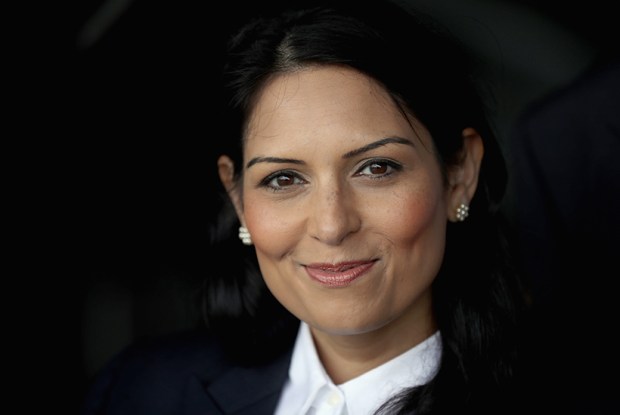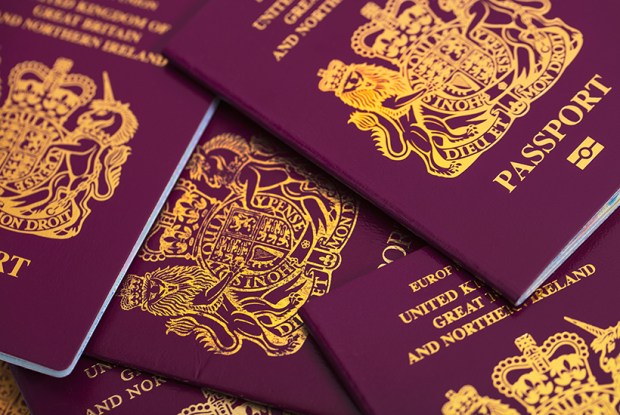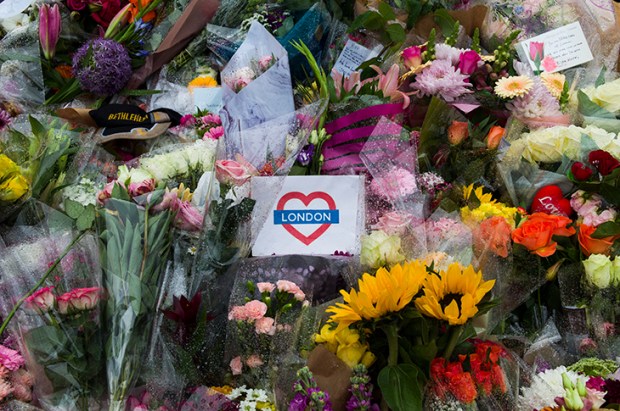It is more than three years since the town of Tisdale, Saskatchewan, decided to ditch its motto ‘Land of Rape and Honey’. That was how the prairie outpost had been known for 60 years, a consequence of the large amounts of canola produced in the region and the fact that they have lots of bees. But the town authorities now thought the slogan had a certain ominous, menacing air to it, so they replaced it with ‘Tisdale — Opportunity Grows Here’, which is entirely lacking in threat, interest and anything else you care to mention.
A year later the supermarket store Aldi was forced to change the name of a paint it was promoting from ‘Rape yellow’ to something else — probably ‘Bright yellow’, I don’t know. Sexual abuse campaigners had been outraged, you see, and apparently unable to accept that a word can have two meanings.
You can tell when an issue has been dangerously politicised by the screeching that arises whenever its name is mentioned, when people think they have ownership of the word and thus the narrative and you are not allowed to mention it any more, not even if you are referring to a noisome brassica related to the turnip, or rapum as it is known in Latin. When that happens, all sorts of derangements occur and the more deranged you are in kowtowing to the new frenzy, the better you’ll be liked by the campaigners.
That has certainly happened to the crime of rape which long ago joined the copious list of stuff you must never, ever make jokes about. The derangement began in the 1990s, predicated on the perhaps correct belief of feminist campaigners that the police were too often dismissive of female claims of rape and that there were both too few prosecutions and too few convictions. So something must be done.
The derangement gathered pace. Now we were quickly enjoined to believe something patently untrue — that all kinds of rape were of equal anguish to the victim, regardless of whether or not additional violence had been employed by the attacker. Following on from this came denunciations of people who said that rape was slightly less likely to occur if women were mindful of what they were wearing, where they were walking (alone) and at what time. These were not, incidentally, people who said that rape was somehow more justified if a woman was wandering alone in a short skirt late at night, which of course it isn’t. Just people who pointed out that this is not a perfect world and that common sense can sometimes be used to obviate danger. That’s deranged, I reckon.
But the derangement was far from finished. Now the police were instructed always to believe a woman when she made an accusation of rape, their discretion and common sense plainly being rooted in sexism. Somehow this transformed itself into an injunction always to prosecute, even when the police were aware that no rape had taken place, even when police had direct evidence that no rape had occurred, evidence which they failed to disclose because the pressure was on to get those convictions. Deranged.
Then came the business with alcohol. Being drunk while committing a crime is never a mitigating factor, the courts are clear about that. But now a woman who had too much to drink and consented to sexual intercourse was to be considered a rape victim — a bizarre case of double standards, of effectively doublethink. And worrying for me, too, because I don’t think I’ve ever had sexual intercourse with a woman who was sober. Oh, maybe once, and it was all a bit grim. But — if the man’s drunk — no mitigation. If the woman’s drunk — rape. Utterly, utterly deranged.
The degree to which we have been captured by this derangement was evident in an ITV drama series I’ve mentioned here before, Liar, where viewers had to choose who was telling the truth in a case of rape, the man or the woman — but they revealed the answer very early on, having accepted that it was quite impossible to portray the woman as being untruthful. To do so would be ‘irresponsible’. The whole point of the series nullified because women are incapable of lying.
When we reach that level of derangement, it’s time to start really worry-ing. It is quite literally a totalitarian mindset: one is not permitted to see beyond it.
And the latest development? The police have suggested that they might need to sequester the mobile phones of women who make accusations of rape, so they can see what they’ve been saying. This is a grotesque invasion of privacy, according to the campaigners. Another violation, almost as bad as the rape itself! Totally unacceptable! It will stop women coming forward! Well, maybe it will stop women coming forward if they have just texted the alleged perpetrator the day after an alleged rape with the words: ‘OMG top shag Bob! C U tonite by the bins at the back of Tescos LOL xxxx’.
A quick look at that mobile phone might prove the difference between a ten-year prison sentence for an innocent man and a verdict of not guilty. But that is seemingly of no import whatsoever to the campaigners. In effect, they are saying that the woman must always be believed and that there is no real requirement on her behalf to provide evidence to back up her claim. And she can do all this in total anonymity, because uniquely for rape cases, that is what the courts insist on, even when the verdict is not guilty.
I have the horrible feeling that under the welter of complaint the police may well renege on this notion of, you know, gathering evidence. And we will continue to be trapped inside this berserk narrative in which men are always guilty, regardless of whether or not they are guilty. And as a consequence more and more injustices will be done.
Got something to add? Join the discussion and comment below.
Get 10 issues for just $10
Subscribe to The Spectator Australia today for the next 10 magazine issues, plus full online access, for just $10.
You might disagree with half of it, but you’ll enjoy reading all of it. Try your first month for free, then just $2 a week for the remainder of your first year.















Comments
Don't miss out
Join the conversation with other Spectator Australia readers. Subscribe to leave a comment.
SUBSCRIBEAlready a subscriber? Log in